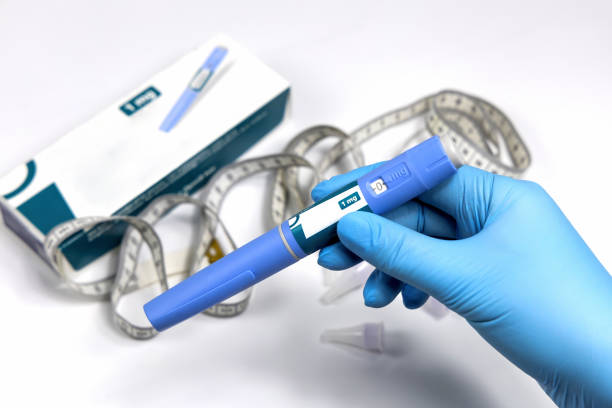The approval of the GLP-1 receptor agonist semaglutide for weight management in January 2023 marked a significant advancement in obesity therapy. However, recent reports from drug regulatory authorities have highlighted rare but potentially severe side effects associated with GLP-1 treatment.
Raising Awareness of GLP-1 Side Effects
As Dr. Susan Yanovski, co-director of the Office of Obesity Research at the National Institute of Diabetes and Digestive and Kidney Diseases, pointed out in a JAMA news report – when millions of people use medications like semaglutide, even rare side effects can affect a considerable number of people.

Although the incidence of these adverse events is low, and the benefits often outweigh the risks for individuals with severe obesity, it is crucial for both doctors and patients to be aware of these serious side effects.
FDA Investigates the Safety of GLP-1 Drugs
In January 2024, the United States FDA issued a communication updating the public about an ongoing investigation into the safety of glucagon-like peptide-1 receptor agonists (GLP-1 RAs). These drugs have come under scrutiny due to concerns about their potential link to suicidal thoughts. However, the FDA has found no causal relationship so far.
GLP-1 RAs are known for their effectiveness in helping with weight loss. But like all medications, they come with a range of possible side effects of therapy. One particularly alarming side effect reported by some patients was the emergence of suicidal thoughts which of course prompted the FDA to delve deeper into the matter.
After examining the data, the FDA stated, “Because the information provided was often limited and because these events can be influenced by other potential factors, we determined that the information in these reports did not demonstrate a clear relationship with the use of GLP-1 RAs. Similarly, our reviews of the clinical trials, including large outcome studies and observational studies, did not find an association between the use of GLP-1 RAs and the occurrence of suicidal thoughts or actions.” For more information, visit Recent findings in GLP-1 studies.
Interestingly, a recent study published in Nature Medicine suggested that GLP-1 drugs might actually reduce the risk of suicidal thoughts compared to non-GLP-1 anti-obesity drugs. According to the study, those taking GLP-1 drugs had a 73% lower risk of developing suicidal thoughts and a 56% lower risk of experiencing recurring suicidal thoughts compared to those on other anti-obesity medications.

Severe Gastric Problems with GLP-1 Medications
A recent study published in JAMA has revealed that GLP-1 receptor agonists are linked to a significantly higher risk of pancreatitis compared to bupropion. Specifically, patients on GLP-1 receptor agonists faced a ninefold increase in pancreatitis risk. Also these patients experienced intestinal obstruction four times more frequently and gastroparesis over three times more often. Despite these figures, the absolute risks for these complications remain below 1% per year of use.
Anesthetic Complications
In the spring 2023, reports emerged in scientific journals about patients on GLP-1 receptor agonists experiencing vomiting or aspirating food during anesthesia. Some of these patients vomited unusually large amounts of stomach contents, even after pre-surgery fasting.
Experts believe these issues stem from the slowed gastric emptying caused by GLP-1 receptor agonists. In response, the American Society of Anesthesiologists now advises patients to avoid taking GLP-1 receptor agonists on the day of surgery and to stop weekly administered agents a week before the procedure.
Long-Term Safety of GLP-1 Treatment
It remains unclear whether long-term use will unveil side effects or complications that have not yet been observed, particularly when these drugs are used for weight reduction.
Studies in rodents have suggested an increased risk of medullary thyroid carcinomas, but whether this risk extends to humans may only become evident after many years. For patients with a personal or family history of medullary thyroid carcinoma, drugs like semaglutide, dulaglutide, tirzepatide and liraglutide are contraindicated.